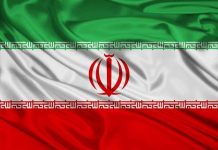DM Monitoring
Kabul: Afghans are watching their country unravel. In recent weeks, over a quarter of the country’s districts have fallen or surrendered to the Taliban, who are emboldened by the departure of US troops. A full withdrawal of the US military is now expected to be completed by late August. At the same time, over the last several months, there has been a shocking series of attacks on schoolgirls, deminers, university students, journalists, and public servants, all met with total impunity. Ethnic and religious minorities have been singled out, as are women and girls in public life. The victims of these atrocities deserve protection and justice.
The three of us have helped the United Nations lead documentation of war crimes and crimes against humanity, and we recognize that the time has come for the UN to do more for Afghanistan during this perilous time. Drawing on our experience, we believe it is time for the UN Human Rights Council to establish an independent international investigation into human rights atrocities in Afghanistan.
Endless attacks with no accountability: It is not difficult for Afghans to imagine what Afghanistan will be like after foreign troops leave. Afghans saw their future in May, when a school was bombed just as students were leaving at the end of the school day. At least 85 school girls were murdered and hundreds more were injured. This was not a random bombing but a carefully targeted attack with two purposes: the students were girls, and they were Hazara, an ethnic and religious minority in Afghanistan, since Hazaras are mostly Shia and the Taliban are Sunni.
Afghans saw the future a year ago when a maternity hospital for Hazara mothers and their newborn babies was bombed. And, in October, when an education center was bombed in a Hazara district in Kabul. What the future holds was also clear when deminers were murdered just weeks ago, after their attackers asked if there were Hazaras among them.
Afghans see their future when bombs explode in crowded city streets and universities, killing without discrimination, Hazaras and Pashtuns, Tajiks and Uzbeks, Sunnis and Shiites, young and old, in provinces all over the country. Young people are being targeted too, including young journalists and women who write critically in independent media outlets or have the temerity to look a powerful man in the eye and ask questions. Young civil society activists are also being gunned down. They, too, are often women, who are working tirelessly for a better future. This includes the staff of the Afghanistan Independent Human Rights Commission (AIHRC), which is also subject to threats. For the perpetrators of these attacks the strategy is clear: Kill women and girls who are forging a different future; kill ethnic and religious minorities; kill progressive voices; kill with careful targeting but also kill randomly to instill terror, fear, and hopelessness; kill any hope of a better future.
The Islamic State in Khorasan Province (ISKP) claim responsibility for some of these attacks, particularly the sectarian attacks against Hazaras and Shias, while the Taliban seems more likely to be responsible for others, particularly the targeting of human rights defenders and journalists, though claims of responsibility are not always made or reliable.
Whoever the perpetrators are, they get away with it. No one takes responsibility and no one is blamed. The government says it will investigate but it has limited capacity to do so. Perpetrators are rarely identified or investigated and, even when individuals are occasionally charged with one of these horrific crimes, they are not named and the public has little confidence in the process. Foreigners have grown tired of the war and US and NATO troops are going home, but the killing hasn’t stopped. Not at all. But instead of diplomats walking away from the problem as their country’s troops leave, there is still something they can do to help stop the killing and hold those responsible to account.
A fact-finding mission is needed to establish truth and accountability: The UN Assistance Mission in Afghanistan (UNAMA) has long provided invaluable support in Afghanistan by documenting civilian casualties and advocating for civilian protection. Still, UNAMA’s relatively limited mandate is defined by the politics of the UN Security Council in terms of the depth and scope of their documentation.




